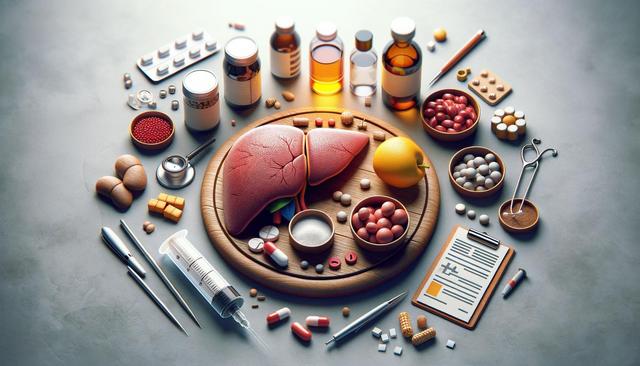Understanding Fatty Liver Disease and the Role of Diet
Fatty liver disease, also known as hepatic steatosis, occurs when excess fat builds up in the liver. It can be categorized as either alcoholic or non-alcoholic, with the non-alcoholic type being more prevalent due to rising obesity rates and sedentary lifestyles. While the condition may not always cause immediate symptoms, it can lead to serious liver damage if left untreated. Fortunately, modifying your diet plays a crucial role in managing and even reversing fatty liver disease. Focusing on whole, nutrient-dense foods that support liver health can help reduce fat accumulation and inflammation. Including foods best for fatty liver in your daily meals is a practical and proactive step toward improvement.
Foods Best for Fatty Liver: What to Prioritize
Choosing the right foods is essential for managing fatty liver. Certain food groups have been linked to improved liver function and reduced fat levels in the liver. The goal is to reduce sugar and saturated fat intake while increasing consumption of fiber, lean proteins, and antioxidants. Here are some healthy foods for fatty liver that are worth incorporating into your diet:
- Leafy greens like spinach and kale – rich in antioxidants and fiber
- Fatty fish such as salmon – a source of omega-3 fatty acids that help reduce liver fat
- Whole grains like oats, brown rice, and quinoa – provide fiber and support metabolic health
- Legumes including lentils and chickpeas – good plant-based protein options
- Fruits like berries and citrus – high in vitamin C and polyphenols
These foods offer nutrients that support liver repair and decrease inflammation. Including them regularly can contribute to a more balanced and liver-friendly eating plan.
Best Foods and Herbs for Liver Support
In addition to whole foods, certain herbs and plant-based ingredients have shown potential in supporting liver function. While research is ongoing, incorporating some of these well-regarded herbs into your diet may offer added benefits. The best foods and herbs for liver health typically promote detoxification and have anti-inflammatory properties. Examples include:
- Turmeric – contains curcumin, known for its anti-inflammatory effects
- Milk thistle – widely studied for its potential to protect liver cells
- Dandelion root – used traditionally to support liver and digestive health
- Green tea – rich in catechins, which may help reduce liver fat
These herbs are often available as teas or supplements, but it’s advisable to consult a healthcare provider before starting any new herbal regimen. Integrating these alongside a diet rich in superfoods for fatty liver can enhance your overall approach to liver wellness.
What Foods are Good for Liver Repair?
For individuals looking to repair and regenerate liver tissue, focusing on nutrient-rich foods is key. Certain foods contain compounds that assist in liver cell regeneration and help reduce oxidative stress. Knowing what foods are good for liver repair allows you to make informed dietary choices that work toward recovery. These include:
- Cruciferous vegetables like broccoli and Brussels sprouts – support detoxification enzymes
- Nuts, particularly walnuts – provide healthy fats and antioxidants
- Avocados – contain glutathione, which plays a role in liver detoxification
- Beets – high in betalains, compounds that may support liver function
These foods not only contribute to liver repair but also support overall health. A varied diet with these components can gradually help restore liver function, especially when paired with other lifestyle changes such as regular exercise and weight management.
Superfoods for Fatty Liver: Enhancing Your Diet
Superfoods are nutrient-dense foods that provide multiple health benefits, and several of them are particularly supportive of liver health. Including superfoods for fatty liver in your meal planning can give your body the extra nutritional edge it needs. Some of the most effective options include:
- Blueberries – packed with antioxidants that may help protect the liver
- Garlic – may activate liver enzymes and reduce liver fat
- Grapefruit – contains antioxidants like naringenin that support liver health
- Olive oil – a healthy fat that may improve liver enzyme levels
These superfoods can be easily incorporated into daily meals such as smoothies, salads, or stir-fries. Their unique properties complement a liver-friendly diet and help maintain long-term liver function. When combined with consistent lifestyle habits, they can be a valuable part of your approach to managing fatty liver.
Conclusion: Building a Liver-Supportive Lifestyle
Managing fatty liver disease begins with mindful dietary choices. By focusing on foods best for fatty liver, incorporating the best foods and herbs for liver support, and understanding what foods are good for liver repair, you can take meaningful steps toward recovery. Emphasizing healthy foods for fatty liver and adding superfoods to your routine not only supports liver health but also improves overall well-being. While dietary changes alone may not cure the condition, they are a critical foundation for managing it effectively. Always consult with a healthcare professional or registered dietitian for personalized advice, and remember that consistency and balance are key to long-term liver health.



Leave a Reply